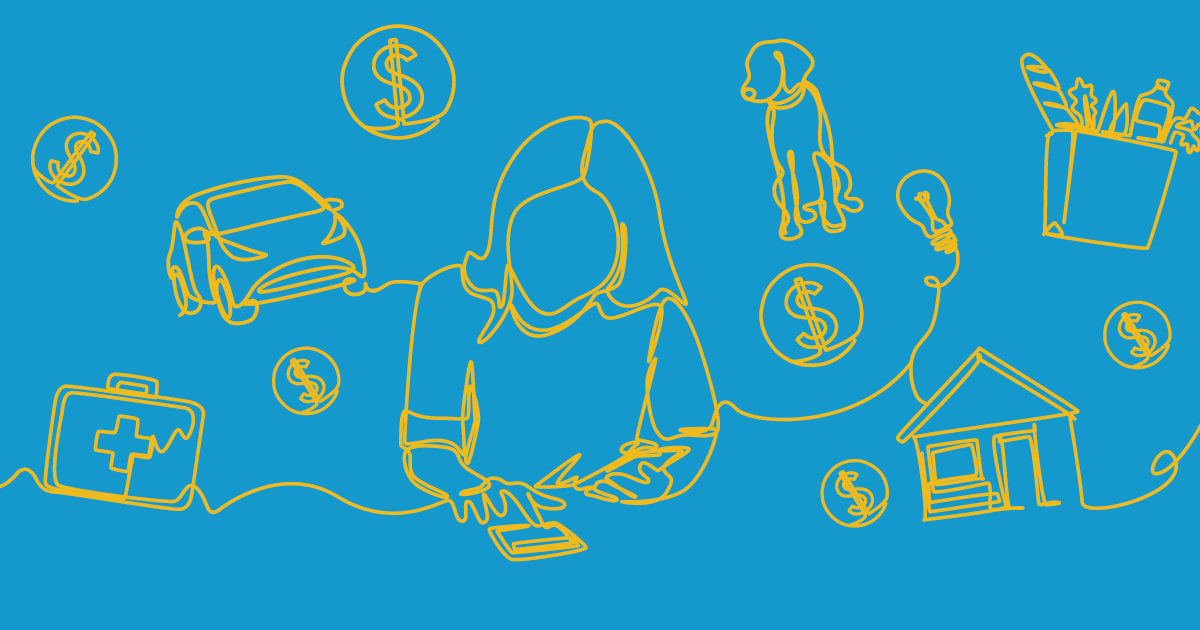Call us 1800 243 232
Menu
Call us 1800 243 232

This research explores the day-to-day experiences of Tasmanians living on a low income in the midst of a national cost-of-living crisis.
It builds on emerging evidence that the stress associated with poverty and engaging with some services cause harm to people’s emotional and physical wellbeing. Participants describe being forced to ration or delay essential healthcare, including for their mental health.
Click on one of the buttons below to download a copy of the research.
We recommend using the WORD version when using a screen reader.
Participants say they prioritise essentials like transport, food, health care and electricity:
“The car thing is a priority. Bills, food. After that, the health thing is in a category all of its own. But it is very, very, very tight – how we live day-to-day”. (Sandra)
People talk about the effort and emotional energy of engaging with Centrelink and employment services.
“It’s all the same – cookie-cutter stuff. Let’s just say, to cut a long story short, it doesn’t really cater to people my age or issues”. (Troy)
People go without important items, services, or experiences in order to make ends meet. This includes rationing or missing out on medicine, dental care, heating, groceries, as well as hobbies and social activities.
“I have always gone without things. I don’t buy anything for myself. I don’t buy clothes, and like I say, I don’t go out. I couldn’t afford to go out if I wanted to. So, if I am not at home, I am at work”. (Rachael)
“[The specialist] was like, ‘I want to do a couple of these tests, but they are quite expensive, so I want to refer you back into the public system…’ […] And the public clinic had a two-year wait for a category two appointment, which is meant to be within two weeks. So, it’s like, well, do I pay thousands of dollars or do I wait two years? How is that a choice?” (Jordan)
“…the feeling of being financially stressed every single day is not pleasant at all”. (Rachael)
“It’s just exhausting and grinding…It just compounds week by week. You think, well ‘What am I going to do this week? What am I going to sacrifice? What can’t I do?” (Troy)
“It’s just this really interesting feeling of feeling like I’m a scumbag and I’m sponging off society, when I know that I’m not. I know full well that I’m not capable of doing what I want to do. And I didn’t want to be in this place”. (Lisa)
“A lot of people I used to associate with I don’t really know, because you know, life’s changed. I can’t do it now. It’s impossible” (Troy)
“It is to do with the trauma of actually trying to get money to live on. It is just so hard. It is so hard. You have to humiliate yourself….It is horrendous”. (Helena)
“They don’t see what happens behind the scenes – that’s the problem. To them, you are just a dole bludger or banging on or whatever. But they don’t see what happens behind the scenes. A lot of them don’t really have any idea”. (Troy)
“I think, how in the hell is someone who can barely use a computer, or who can’t read, or has mental health issues, or all the myriad of things that people have that put them in contact with these people…How the hell do they navigate it? They don’t – they can’t”. (Helena)
“…I am not far from living under a bridge. I mean, that’s the truth of the fact, you know? Because there is nowhere cheaper to buy than what I am already in. Okay?” (Rachael)
“I have more of a concern about the future than I have about now. Particularly if I stay sick. I am not quite sure how that’s going to work”. (Helena)
“Just trust that things will work out. Just deal with what’s in front of you”. (Cathy)
“Rather than thinking of money, I like looking for a creative solution. And I think that flows into not spending so much….Well, it empowers you – it feels like you are in control of your life, even if only a small segment of it. Rather than being controlled by the fact you live on $15,000 a year”. (Sandra)
“…things can and will change because we’re trying to make them change, so that’s something. But in the meantime, I do feel very happy and grateful”. (Erin)
That the Federal Government raise the base rate of JobSeeker Payment and other working age payments to ensure that the incomes of all Australians are above the Henderson poverty line.

That the Federal Government’s implementation of the Strengthening Medicare reforms and reviews of the management of chronic disease specifically seek to:
Address gaps in the Federal Government’s support response for people on low incomes with chronic conditions to ensure that:

That the Federal Government’s implementation of the Robodebt Royal Commission’s recommendations prioritise implementation of recommendation 10.1, with:

That the Tasmanian Government actively work to reduce discrimination and stigma for people living on a low income in Tasmania, including:

Click the button below to visit our contact page
Contact usOr, if you'd prefer to email us directly
Email usOr, phone us on
1800 243 232